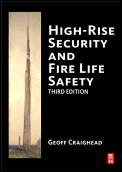Fire alarm signaling devices are integral to the health and safety of a building and its occupants. Not only do they notify those inside of the building, but they can also alert first responders.
Ahead, SDM consults with two industry experts about the latest trends, codes and products.
SDM: What new trends are there in fire alarm signaling? How do they affect the dealer/integrator?
SANJEEV KUMAR, EDWARDS/KIDDE COMMERCIAL: The most important trend in the fire alarm notification appliance market is the race for increased efficiency. LED technology has opened up the gates by providing reliable and powerful notification devices that significantly lower power requirements. The Kidde Commercial Genesis LED portfolio, for example, features patented LED technology in all of its notification and mass communication strobes. These Genesis LED devices provide strong and reliable notification without being the ‘power hogs’ of yesterday. This results in significantly reduced costs for both new installations and retrofits.
A second industry trend is a shift from traditional horns to audio speakers transmitting live audio or recorded voice instructions. Today, it’s understood that building occupants are more receptive to a human voice message than traditional fire life safety tones. This enhanced response results in improved accuracy, faster response times, and more effective emergency communication and evacuation.

BRIAN HODGES, STI: A new trend in horn and sounders is voice messaging for evacuation systems. A voice evacuation system is an integrated emergency communication solution found in large buildings, factories and public venues. The primary objective is to provide clear and intelligible voice messages during emergencies. The updated systems use human voice, tones and verbal instructions to alert people to an urgent situation and initiate evacuation procedures. They are an enhancement of a fire alarm system and can be used to alert people to emergency conditions such as severe weather, chemical spills, active shooter scenarios, natural disasters and other types of life-threatening situations. Voice messaging for evacuation procedures project calmer, orderly instructions individuals can easily follow and understand. The same can hold true for the pre-alarm.
Voice message warnings can help in louder environments where there is a great deal of noise, such as machines running, machine parts clanging, large equipment moving, etc.
SDM: Are there new codes concerning signaling devices — or related codes that impact these devices?
KUMAR: Kidde Commercial is constantly evaluating ways to incorporate proposed code changes into our product suite. Recently, code changes have been proposed to the National Fire Alarm and Signaling Code NFPA 72 2025 edition, Chapter 18. For these proposed changes, Kidde Commercial will address low frequency audio requirements that push the envelope on audio capabilities to exceed the “Excellent” Speech Transmission Index (STI).
Specifically, these proposed changes would require a new mode called Restricted Audible Mode Operation (RAMO) be implemented next to private, public, and sleeping areas. RAMO is designed for locations or areas in buildings where typical occupants are more sensitive to being disturbed by loud sounds, such as early childcare facilities, spaces serving individuals on the autism spectrum, or locations with occupants who are neuro-sensitive. These proposed RAMO settings determine the required use of visual notification and utilize horns set at low frequency and operating sound levels to be less disruptive to these sensitive populations.”
HODGES: Horn and sounder codes require horns and sounders within a building meet certain criteria, such as low frequency audible alarm requirements for people who are hard of hearing, school age children and the elderly.
SDM: What products are your company offering that could help security dealers and integrators?

KUMAR: Kidde Commercial’s Genesis LED portfolio provides dealers and integrators with a robust, flexible and cost-effective solution. To address existing gaps and needs, the Genesis LED portfolio focuses on delivering cost effective solutions that are reliable as well as easy to install and maintain.
Genesis LED appliances go beyond fire alarm notification with the new Genesis LED Mass Notification series, available in wall and ceiling formats, both in speaker-strobe and strobe only, as well as strobe expander only options. During an emergency, hearing and understanding the notification of specific event types is critical to safeguarding people and property. These appliances feature superior audio capabilities that exceed the ‘Excellent’ Speech Transmission Index (STI) clarity rating.
The Genesis LED series offers ultra-low current draw, reducing runs and constant draw across candela output settings. These appliances offer backwards compatibility and can operate in a range of unpredictable environments and weather-related hazards.
HODGES: With the different levels of protective covers STI manufactures, the dealer can offer a designed fit solution to what the customer needs. Most STI protective covers are designed and manufactured in the United States, so lead times are not an issue.
SDM: Any closing thoughts on the signaling device’s role in fire and life safety?
KUMAR: During an emergency, horns and sounders are designed to prioritize the protection and safety of people with audio and visual alarms as well as notify first responders of the event. Our goal is to make these devices seamless, highly efficient and easy to install. It’s crucial not only to meet code requirements but to exceed industry standards, enhancing overall safety and reliability.
HODGES: For over 40 years STI has manufactured time-tested and certified products to protect signaling devices. Integrators should choose protective products that are certified to ensure the signaling devices perform to code.












